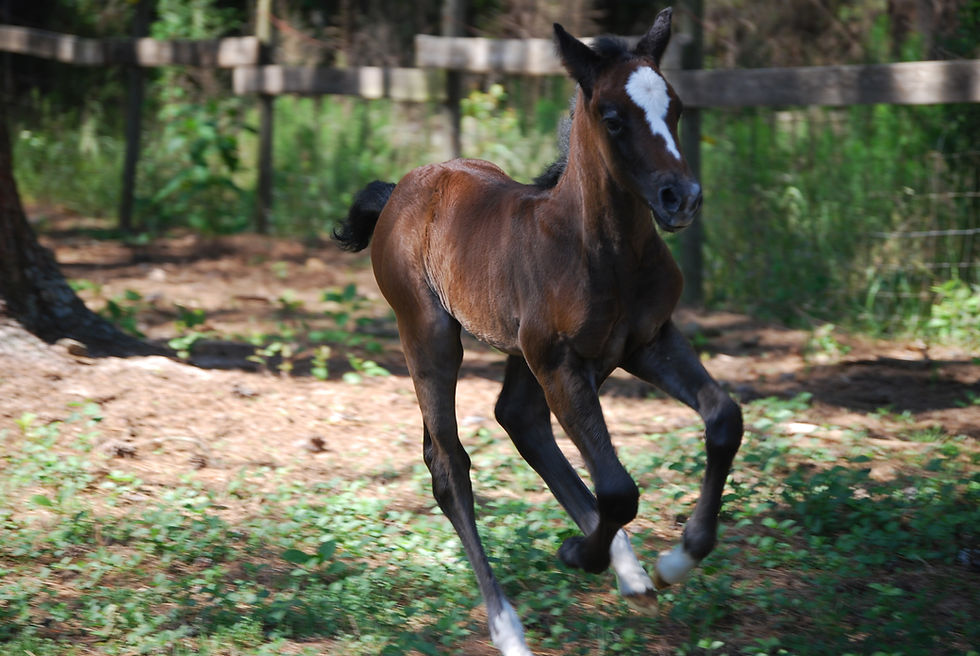Equine Emergency Spotlight: Choke!
- Dr. Katy Mayhew
- Dec 29, 2017
- 3 min read

A choking horse is an emergency that should be evaluated by your vet quickly, but a choking horse is very different from a choking human. When humans choke, some foreign object, like a piece of food, is blocking the airway and preventing the person from being able to breathe. When people talk about a choke episode in a horse they are referring to an obstruction of the esophagus that does not prevent the horse from being able to breathe, but does prevent food and saliva from reaching the stomach.
What are the signs of a choke? A choked horse may gag or stretch his neck out. Sometimes you can actually see the bugle of feed lodged in the esophagus on the left side of the neck. Some horses become very anxious and may try to roll or run out of the stall. The most tell-tale sign of a choke is when saliva or feed begins coming out of your horse’s nostrils. Horses continue to produce saliva even after the esophagus becomes blocked but they cannot swallow it down into their stomach and it starts to come back up and out of the nose. This can cause a very serious problem called aspiration pneumonia if the horse inhales any of the feed particles or saliva into their lungs.
What should you do? If you think your horse is choked, call your veterinarian! While you wait for the vet to arrive, take all your horse’s feed away and encourage him to keep his head low to reduce his risk of aspirating. You can try to massage the mass to see if it will pass into the stomach, but do not try to make your horse swallow water or run a hose into his mouth as this increases his risk of aspiration pneumonia or trauma to the esophagus!
What to expect when the veterinarian arrives: Your vet will perform a full physical exam on your horse, paying careful attention to listen to his lungs. Your horse will be heavily sedated to keep his head low during the next procedure. A stomach tube will be passed through your horse’s nose and into his esophagus. Your veterinarian will then gently try to push the feed blockage into your horse’s stomach or will use water to gently soften and work to remove or shrink the mass. Sometimes resolving a choke can take several hours and many times horses will also get a nose bleed due to all the irritation from the choke and the tube in their sensitive nasal passages.
Once your veterinarian has resolved the choke, she will most likely remove the tube and pass it one more time into your horse’s stomach to confirm the esophagus is clear. Your horse will most likely need antibiotics and Banamine to treat his lungs and the inflammation in his esophagus. Your vet will likely have you monitor his temperature closely and call if he has any nasal discharge or a fever!
How to prevent a choke: General preventative care can help stop a choke from happening or prevent another episode from occurring.
Regular dental examinations and floats are important to make sure horses can chew their food appropriately.
Many older horses benefit from having their feed soaked for 10-15 minutes prior to being fed so that it is a nice soupy mash. ALWAYS soak beet pulp before feeding!!
If your horse eats really fast, consider adding softball sized rocks or a large salt block to his feed pan to slow him down.
Separating your horses when feeding them may help slow them down and allow you to pin-point if any of them are having trouble chewing or are dropping their feed.
Talk with your veterinarian about the best management changes you can make for your horse to prevent chokes!





Comments